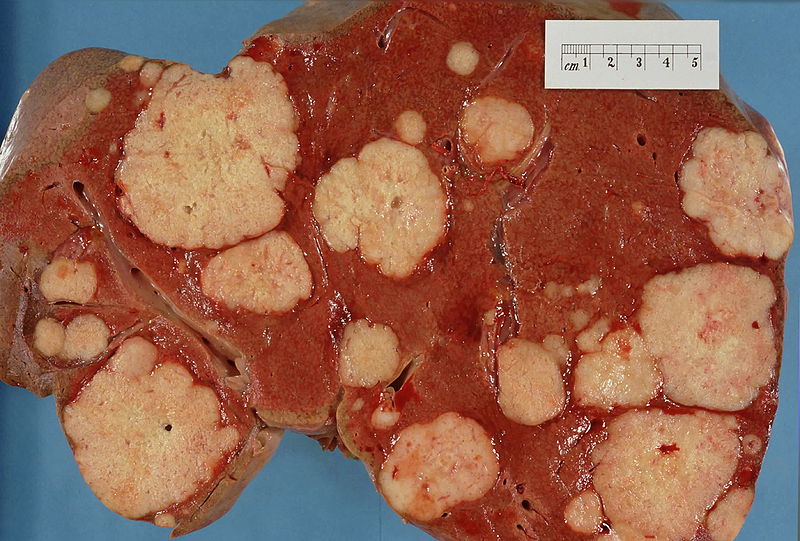Scientists have discovered a chemical signature that indicates when a bowel cancer has spread.
Fifty percent of colon cancers relapse within 5 years of  diagnosis and treatment, but picking up when this has happened is very difficult, meaning that it is hard to provide patients with accurate prognostic information.
diagnosis and treatment, but picking up when this has happened is very difficult, meaning that it is hard to provide patients with accurate prognostic information.
Now, a paper in the Journal of Proteome Research by Zhejiang University, China, researcher Hua Xue and colleagues describes two proteins that can be used like a chemical fingerprint to look for signs that the disease has spread.
The scientists used two cultures of cancer cells which both came from the same patient. One group of cells were from a primary bowel cancer in the patient, the other group of cells were from a metastatis (spread) to a lymph node.
Reasoning that the differences could be used to distinguish the metastatic from primary tumours, the researchers compared the levels of the different proteins secreted by the two groups of cells. Those that were expressed at very different levels were picked out and the team were able to home in on 6 with the best test prospects.
Two of these were then measured in 300 patient samples, half with disseminated bowel cancers and half healthy.
The proteins were significantly correlated with the presence of metastatic cancer and could pick up disease with a sensitivity of 78% and a specificity (meaning that a negative result is a true negative) of 99.4%.
This promising result shows that, with modern techniques, the discovery of novel cancer biomarkers is feasible and has significant therapeutic potential.










Comments
Add a comment